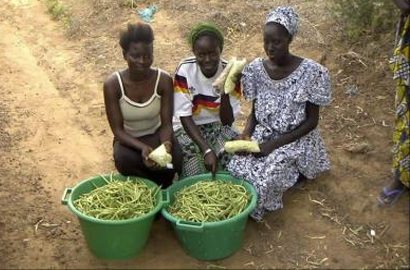By Issa Sikiti da Silva, in Dakar, Senegal
Digital farming in the 21st century has become one of the most preferred methods among both the farm community and agricultural researchers, as unpredictable patterns such as population growth, global economic downturn and climate change put pressure on food security, and challenge traditional farming techniques.
However, it is not going to be a smooth-sailing passage to heaven, as several challenges need to be overcome, first, before agriculture can enjoy the full benefits of the digital revolution.
All eyes were on mobile phones to play an important role in lifting Africa’s rain-fed agriculture to higher levels, but if it did, it did so minimally, and in many instances only on a trial basis. This led to some experts coming to the conclusion that the highly-publicised African cellphone revolution missed the boat in saving the continent’s agriculture sector.
According to Anthony Mugo and Mireille Vermeulen, cellphones in many parts of Africa are not yet widely used to support farming because most farmers who have mobile phones only use them as a social communication tool.
“My phone helps me to communicate with my family and my customers – the people to whom I supply farm products, that’s all,” small scale farmer Omar Thiam told Biztechafrica.
Even so, Thiam admitted that sometimes they do experience network problems in their area – problems that affect communication and force them to redial, especially during peak hours.
Mugo and Vermeulen justify this: “Part of the problem is that there are still practical problems in the use of ICTs on a large scale. Large areas of the continent are still not connected, and the communication costs are very high.
“An average person in Africa pays relatively 10 times more for mobile communication than somebody in Europe.”
Besides, ICT applications for farming are still limited in Africa, Mugo and Vermeleun said, adding that illiteracy was still widespread, especially among the elder generation, which they said was limiting the full use of digital ICTs.
Thiam (55) and his friend Faye (53) ploughing the soil nearby are both illiterate and have to call up school youths in the area to help them make some important transactions. When they are at home, their children help them to sign documents and read their correspondences, including bank statements.
Both friends did not attend formal school, they went in Islamic schools instead, where they were taught only to read the Qur’an.
“If this ICT-enabled farming is complex and for only for those who can read and write French, and use computers, then we will have no choice but to stick to what we know best,” Faye said emotionally.
“Anyway, we are the old generation and it’s perhaps too late for us to get involved in this kind of revolution.”
